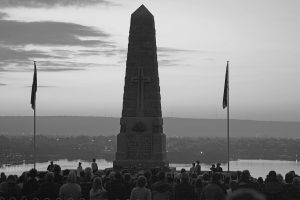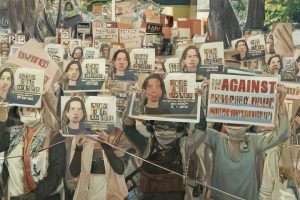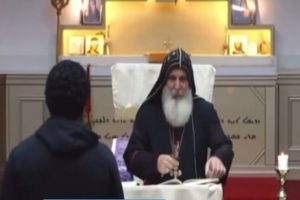[The below article was first written on the demise of my beloved father Syed Shafiq ul Hassan (April 1936 to March 2007. He was died on 13 March 2007]. I am reproducing to pay him tribute again on his death anniversary on 13 March 2024.]
Stranger Around Us by Syed Atiq ul Hassan:
Monday, 19 March 2007, 2:29 pm, by Syed Atiq ul Hassan first written on 16 March 2007
By Syed Atiq ul Hassan, March 16, 2007
When his father made the decision to migrate to the newly created Pakistan in 1947, he was just 11 years old, and at that time, he was the eldest among his 8 brothers and sisters. From his early
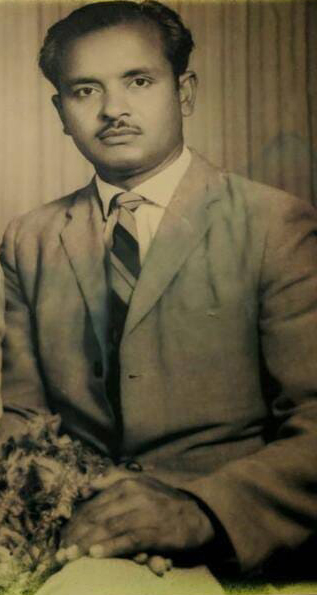
years, he carried with him the weight of pain, suffering, and the loss of human lives, having witnessed the atrocious events during the historic voyage with his parents and the millions of others from India to Pakistan. His family bid farewell to the land of their ancestors, Ajmair in India, and settled permanently in Hyderabad, Sindh, Pakistan.
His father, a sincere police officer under the Indian administration, resumed his duties in Hyderabad, Sindh, but retired after only a year in the newly formed country in 1948. Sensing perhaps the end of his life approaching, his father arranged his marriage to a 16-year-old girl from Karachi in 1954 when he was just 18 years old. By the time his father passed away in 1958, he had already become a father himself. With the responsibility of caring for his own family, mother, four brothers, and three sisters, he was fully committed to living for others.
Deeply influenced by the unforgettable adversities of the Indo-Pak partition, the burden of his family, and the responsibility of assisting newly arrived relatives from India, he dedicated himself to social and welfare work for the rehabilitation of people. Balancing full-time work with part-time studies, he graduated from Oriental College Hyderabad and pursued teaching as his profession. Beyond his family commitments, his only hobby was his social work, particularly in his hometown, Sarfraz Colony, which was named after Sarfraz Shah Kilhora, whose tomb was situated in that area, by his father, Syed Wajid Ali. He continued his father’s mission, contributing all his efforts to the development of Sarfraz Colony. In the 1960s, he successfully legalized the land of the Colony through the assistance of the late Zulfiqar Ali Bhutto, who was a minister in the government of former President Ayub Khan.
He was none other than my father, Syed Shafiq ul Hassan, who left us on Tuesday, the 13th of March 2007, but his legacy as a role model remains forever etched in our minds and hearts.
I believe this article cannot fully encompass the historical events detailing my father’s invaluable services, but the tangible evidence in the form of awards, appreciation letters, certificates, and a substantial album serve as a testament to his unforgettable social and welfare work.
In the early 1970s, my parents opened their own primary school in Sarfraz Colony, which later expanded into two schools, one for boys and one for girls, each headed by one of them.
Behind my father’s ability to fulfil his commitments stood my mother and his wife, Bilquees Begum. While I could speak volumes about my father, I recognize that there is equally much to be said about my mother’s contributions. Together, they were admired as a great couple, supporting each other at every moment and step. However, tragedy struck when my mother died in an accident in 1992 at the age of 49.
A significant memory I hold dear is of a large banner outside my father’s school that read, ‘A Centre for Education and Etiquette.’ When asked why he included “Etiquette” on the banner alongside education, his response remained consistent: “Without Etiquette and Discipline, your education has no meaning.”
Whenever family members expressed concern about his full-time engagement in social and welfare activities, citing his lack of leisure time, he would respond with a quote: “Allah said, ‘If you worship for me, it is between you and me (the Lord) whether I (the Lord) accept your worship or not, as being your Lord is my judgment, but if you help your fellow human beings, I (the Lord) owe you and reimburse your deeds’.”
The honest, noble thoughts, and sincere efforts of my parents shaped all of their children into good human beings. Today, most of my siblings, myself included, are associated with education. Two brothers and one sister are well-known educationists in Pakistan, managing a chain of renowned institutes. Another brother and sister reside in the United States, while one sister resides in Canada. As for myself, I attribute whatever success I have achieved to my parents’ good deeds.
As the eldest among my siblings, I had the privilege of spending much time with him. He would often take me along to his social, welfare, and political meetings and functions.
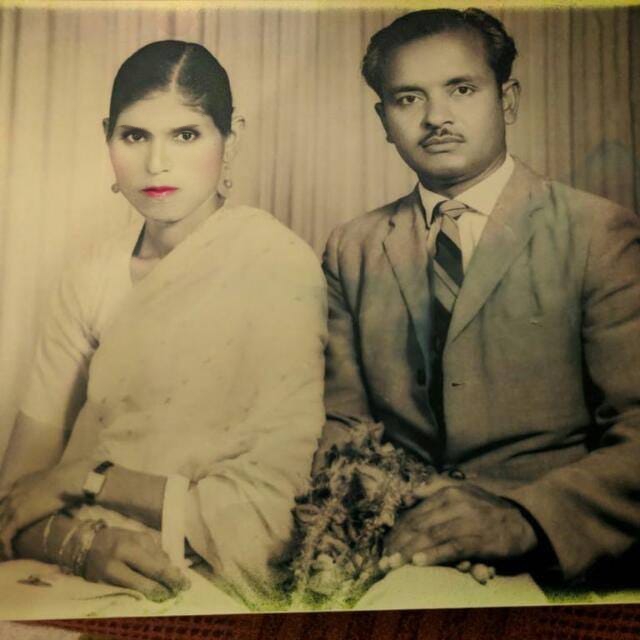
One particularly vivid memory is of singing the favorite national song “Yun Dee Haymen Azadi Kay Dunya Huyi Heran – Aay Qaid-e-Azam tera Ahsan Hay Ahsan” with my brother during the annual function mainly organized by my father in our town. I will never forget my father’s advice to me: “If you get the chance to work in a capacity that uplifts your country’s name, never miss it.”
One memorable event occurred in the mid-1970s when the former Prime Minister of Pakistan, Zulfiqar Ali Bhutto, visited Hyderabad to garner support from the opposition-held city. My father was among the few invited to meet Bhutto. When Bhutto recognized him before the commissioner could introduce him, my father simply replied, ‘I am still a teacher.’ Despite Bhutto’s suggestion that he could have pursued other opportunities, my father remained steadfast in his dedication to social and political work, viewing teaching as his true calling.
When I made the decision to move to Australia, my family saw it as a step towards a brighter future in various aspects, except for my dad. He questioned my decision, wondering why I had applied to immigrate to Australia when I already held a university degree, had a promising job in government at a young age, and enjoyed a comfortable life with my family. His foresight warned me: ‘You may find another better job, more money, better educational opportunities for your children, and better social security for your family, but over time, you may lose your culture, your family values, your connection with your parents, and your native identity.’
From 1997 to 2002, when I hosted a radio program on FM100.9 in Sydney, I frequently invited my father on air to discuss current affairs and the latest political situations in Pakistan. His political predictions were remarkably accurate, and this segment was highly appreciated by our listeners. Over the years, he received numerous awards for his social and welfare services from various presidents, including Ayub Khan and Zia ul Haq. He was a founding member of many social associations, NGOs, and welfare societies, including the Sarfraz Colony Welfare Society.
An excellent writer, poet, and remarkable speaker, I witnessed him address thousands of people at public gatherings with the audience hanging onto his every word as he discussed social issues and their solutions. All his poetry centered around human issues, life, and his connection to God.
When I completed my book ‘Australia for Pakistan’ in 2003, the first person I thought of was my father, and I dedicated the book to him as a tribute. He remains my role model not only because he was my father but because he was a truly exceptional human being who made a difference in the lives of many.
In this materialistic world, simple and altruistic individuals often go unnoticed and unappreciated. Sadly, we are losing them one by one.
[Little words dedicated to my father – Syed Shafiq ul Hassan (April, 1936 – March, 2007). He was died on 13 March 2007].
END

